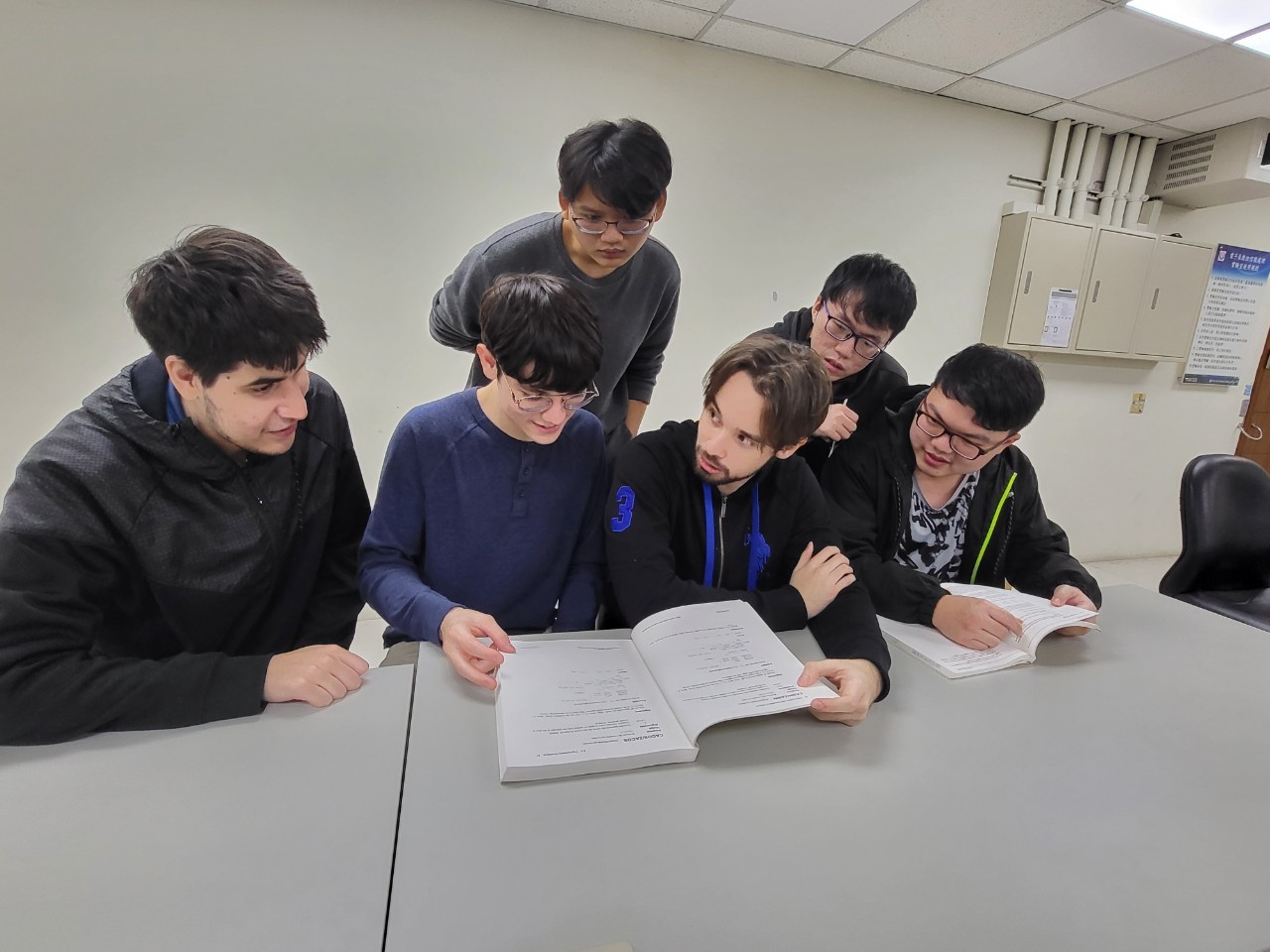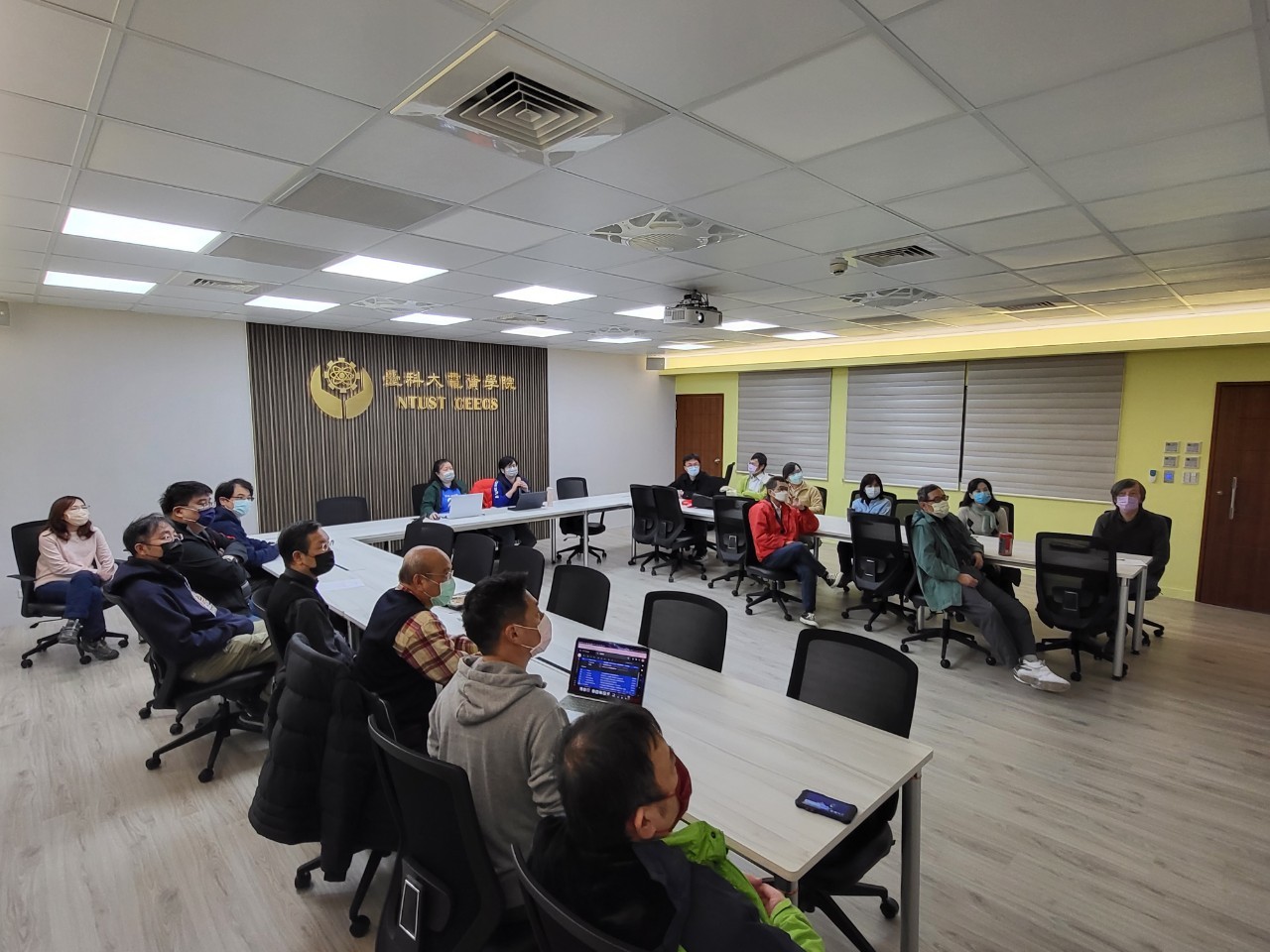Abstract
In order to align with the national Bilingual Policy, and to develop a strategy that fits the characteristics of the College and aims to cultivate international professionals, the first year of the College's Bilingual Program was devoted to building a college-wide consensus and adopting a strategy of " internal integration and external connection."
For the internal integration part, first of all, we strengthen the link between the college and the departments in bilingual teaching and convene the departments to establish a College EMI Promotion Committee, which is responsible for the promotion of EMI. Moreover, through regular meetings, the Committee provides comprehensive training and support for the faculty, formulates and reviews the reward system for teachers and students, regularly examines the achievements of bilingual courses, and provides corresponding improvement strategies to enhance the quality and quantity of English teaching. In the 2021 academic year, four meetings were held to establish " CEECS Directions for Implementation of Subsidies for EMI Courses," " CEECS Guidelines of Taking English Courses Subsidy," "CEECS Guidelines of English Proficiency Test Subsidy," "CEECS Guidelines of International Information Communication System Program (Undergraduate Program)."
As for the external connection, national experts and scholars were invited to establish a consultative committee. In the 2021 academic year, a committee meeting was held to bring in the experience of implementing bilingual education in other schools and continuously optimize our EMI promotion strategy through the review and supervision of expert committee members.
Our EMI curriculum is mainly designed to guide students' learning progressively. Students are encouraged to take the summer academic English prerequisite course before enrolling and are introduced to EMI concepts from then. Over 200 freshmen have participated in the 2021 academic year. The College Curriculum Committee has worked together to plan an appropriate and high-quality EMI professional course, starting with the foundation course, so that students can systematically take EMI courses.
In addition, to complete curriculum planning, we are working simultaneously on teacher teaching and student learning these two aspects:
For teacher teaching:
- Our university and college have set up EMI teachers' professional consultation window and support system to assist teachers in opening classes and encouraging them to participate in teaching communities to enhance their teaching knowledge.
- Bilingual Courses:Our EMI courses comply with the "Dual Incentive Program for EMI Teaching at University and College" to encourage teachers to begin courses. The number of courses offered has increased significantly, with a total of 42 courses in 110-1 and increased to 59 courses in 110-2, with nearly 1,000 students enrolled in the EMI courses in the University and Graduate School.
- Enhancement of teaching knowledge:In order to enhance the English teaching ability of our teachers and cultivate EMI teaching skills in professional fields, we encourage teachers to obtain the Cambridge EMI online course certification. 46 teachers have obtained the certification and 21 have participated in teacher training workshops or seminars to continuously optimize their teaching skills.
- Teacher Professional Growth Community:To deepen the skills of EMI teaching, teachers are encouraged to form communities to share their teaching experiences in order to promote students' learning effectiveness. In the 2021 academic year, a community of EMI Cambridge teachers was established, and four communication activities were held.
- Teaching assistant: Depending on the number of students taking the course, the university department assigns 1-3 teaching assistants to assist the teachers in teaching and management to reduce the teaching burden. In the 2021 academic year, nearly 80 teaching assistants assisted in the bilingual program.
For student learning:
- Improving the counseling mechanism:To assist students in their professional studies, we arrange for TAs to provide after-school counseling from Monday to Friday, with ten courses, mainly freshman and sophomore major courses.
- English Grading Classes:To enhance English proficiency, we offer both physical and online English tutoring classes free of charge by the level of students in the 2021 academic year.
- Physical classes:We offer four English classes, including Basic, Intermediate, Advanced, and Oral.
- Online classes:Online self-study courses are offered to students at three levels, and students attend classes according to their level and schedule. There were 100 students enrolled in the self-study courses.
- English test application fee subsidy and reward for passing the test:To understand the effectiveness of the student's learning in English counseling classes and encourage them to take examinations for English tests, we subsidized the application fee for 93 students, and 50 students applied for the reward for passing the English test.
- Encoraging disadvantaged students to take EMI courses: To encourage disadvantaged students to take EMI courses, we provide subsidies to 9 students who meet the disadvantaged criteria of the Academic Affairs Office.
- Midterm and final evaluation feedback:Through "Midterm Teaching Evaluation" and "Final Teaching Evaluation," teachers will be able to identify problems early and make appropriate adjustments for future improvement. This assessment and monitoring process aims to enhance students' learning effectiveness, support teachers to continuously improve their teaching methods and efficiency, and attract students' willingness to take EMI courses.
In addition, the "International Communication System Program" was officially established in the 2021 academic year. It combines the expertise of teachers in electronics, electrical engineering, and information technology with international trends to develop courses of study and allow international students to study. Besides, we have completed an enrollment video to promote co-study between local and international students and cultivate professionals with a global perspective.
In general, the first year of the bilingual program was focused on building consensus among faculty and students, establishing a diversified incentive system, and gradually promoting a counseling mechanism. So far, the systems are improving and have successfully attracted teachers to offer EMI courses, especially in the undergraduate division, where the number of courses offered has grown considerably, and the number of students taking them has met expectations. In the future, we will continue to assist teachers in strengthening their English teaching capacity, combining diverse counseling mechanisms and resources to improve EMI teaching and learning performance.

